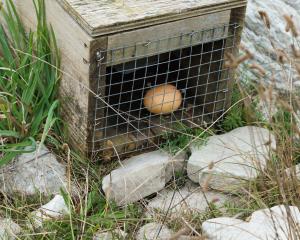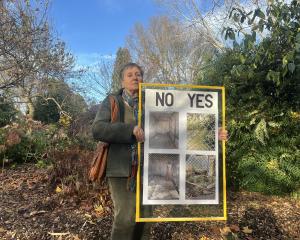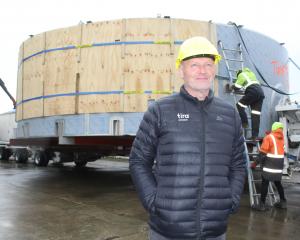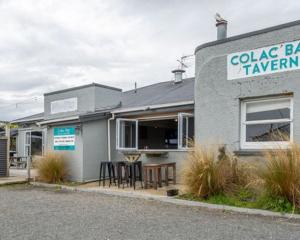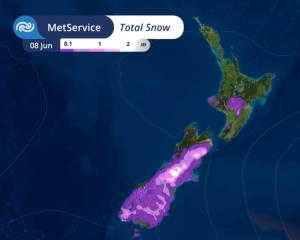
Otago's city and district councils spent $27.4 million on consultants in the financial year to mid-last year.
Councils say that expenditure is required to fill gaps in expertise, or is used in areas where there is not the demand to hire full-time staff.
They claim that through their work with councils, consultants help lift the knowledge base of staff.
Some of the larger amounts earned by consultants went to multi-disciplinary, multi-national companies like GHD Ltd, MWH and Opus International. These firms provide expertise across a range of areas, including planning and roading.
The Queenstown Lakes District Council's $18.7 million spend was by far the largest of Otago's councils.
Chief executive Duncan Field said this was a result of a small council in a high-growth economy.
The cost of consultants was strongly criticised last year by two Queenstown councillors, Vanessa van Uden and Gillian Macleod, who said they were unimpressed by the amount spent.
In Queenstown, GHD Ltd earned the most from the council, at $5.4 million, while MWH New Zealand was paid $4.5 million and Connell Wagner $2.5 million in the financial year to July 2008.
Mr Field said a large proportion of the budget was invested in the design of new roads and sewerage systems, which were both products of growth.
With only about 100 staff, compared with almost 700 staff at the Dunedin City Council, Queenstown did rely more on consultants.
"We choose to do things differently."
While he did not have updated figures, Mr Field said the council had made "inroads" into the budget, which would be lower this year.
At the Dunedin City Council, hiring consultants with expertise in water and waste services cost $534,000, planning $406,000, roading $322,000, and parks $349,000 in the last financial year.
The budget for the 2008-09 year was slightly lower than the previous year, at $3.1 million.
Council chief executive Jim Harland said while that was a lot of money, as a percentage of staff costs it was not high.
The cost to the council for employing its staff was almost $46 million.
He said in some cases there was not enough work in certain areas to justify hiring a staff member.
"Where we don't need someone full time, then it comes up in the consultants' budget."
And if the council was short of staff at any time it could need, for instance, a resource consent planner.
That could be essential in certain cases.
For instance, if the organisation was two or three staff down in the building consent area, it might struggle to get applications done within the statutory 20-day time frame.
Mr Harland said the council had moved towards using consultants in the last 20 years.
During the last major local authority organisational shake-up, in the late 1980s, there was pressure to use private companies to get value for money.
If it were possible to get good quality services from the market, that was a good thing, Mr Harland said.
"I agree with that."
As well, people who came from the private sector brought an extra dimension to the council.
Property valuations, for instance, could require someone experienced in the marketplace.
Consultants could also help lift the knowledge base of council staff, as they worked with a variety of organisations in Dunedin, nationally and overseas.
The council was criticised for its use of consultants.
Mr Harland said the criticism was "entirely appropriate".
Staff did consider its use of consultants, and when work was ongoing, made decisions on whether it might be cheaper to have permanent staff.
"Quite a few" consultants had been used for information communications technology, although there was now a staff member with knowledge in that area, something that would hopefully reduce costs in future.
But consultants brought aspects of the private sector to local government, something that was that useful.
Consultants were independent of the council, and less likely to favour one particular view.
"That's quite helpful," Mr Harland said.
In the marketplace, people had to be aware of the customer, something Mr Harland said he wanted his staff to bear in mind.
"The culture I'm trying to develop is business-like, even though we're not a business."
The Waitaki District Council consultants' budget for 2008-09 was slightly lower than the previous year at $2.3 million.
Council corporate services group manager Stephen Halliwell said consultants were employed in specialist areas where expertise was not available within its staff.
In some circumstances, this expertise was required by outside agencies, such as the New Zealand Transport Agency (NZTA).
In some cases, consultancy costs had been recovered.
An example in the past two years was the more than $240,000 spent on consultants for the Holcim (New Zealand) Ltd cement plant resource consents process.
This figure was recovered.
Consultancy costs associated with NZTA-subsidised roading costs were also recoverable.
The Central Otago District Council spent the bulk of its $1.6 million consultants' budget on roading and utilities.
Asked if his council was considering bringing any work in-house rather than using consultants, a spokesman said the question seemed to infer consultants' costs were inappropriate.
"In areas where workload is highly variable, in short supply, or required skills are specialist and are not able to be fully occupied over a year, then external consultants are necessary to avoid inefficient long-term arrangements," he said.
"For all our consultancy costs . . . these factors are present."


